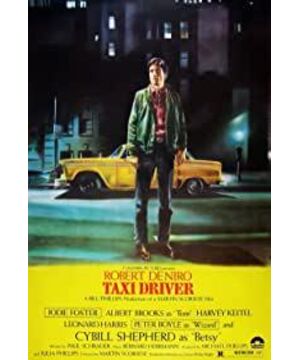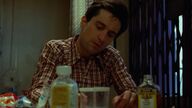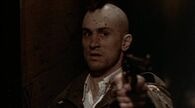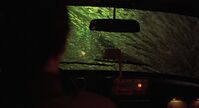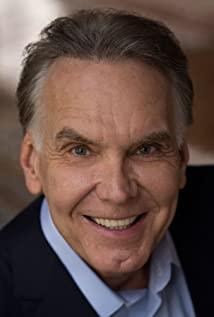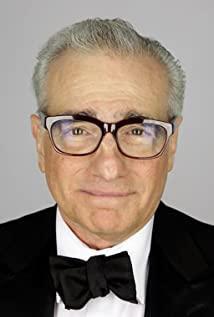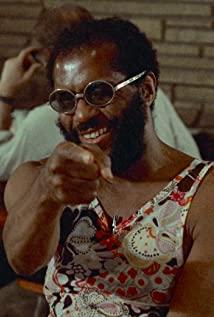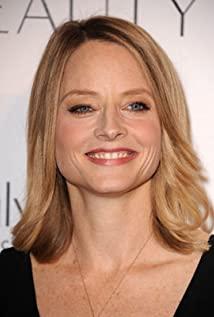I have seen this movie a long time ago, and I even watch it several times a year, but unfortunately I have never written about my feelings. Today, taking advantage of the interest in watching this movie, I write about my feelings, and I have the right to record my movie watching history. The reason why I like this movie so much is because the protagonist Travis makes me feel the same way. He rejects the mainstream, cannot establish normal relationships with people, and has strong self-contradictions. Had his experience.
At the beginning of the film, the camera is aimed at the eyes of the protagonist Travis. The New York seen through his eyes is blurred, with high tonal contrast and even a little distorted. Martin Scorsese uses the technique of horror films to present such a world that is brightly lit and wrapped in darkness, and adds a soothing soundtrack to render a decadent temperament. This is also Travis' intuitive view of the world, no matter how much light, he always sees black. The film follows on the nights that Travis drives in New York every day, and his view of the world is "everyone at night, prostitutes, prostitutes, thieves, gays, drug dealers, addicts, perverts, monsters", And hoping that "a heavy rain will wash away these scumbags", Travis hates the world he lives in, the nights in New York, and the black districts. But the paradox is that at the beginning of the film, Travis took the initiative to find a job as a taxi driver and said, "I'll work anytime, anywhere (I don't care when and where I work)." In a sense, the choice of this contradictory meaning is the fundamental reason that pushes Travis to self-destruction. Many of Travis' actions in the film are contradictory to his inner dialogue. He is a walking contradiction.
In general, there are several groups of people who are more important in the film, namely the taxi driver friend, the presidential candidate secretary Bessie, the presidential candidate Palantine, and the young prostitute Iris.
1. Travis' driver friend. They showed up at a cafe, and when Travis' friends were discussing women, tips, and hoping to pass the time with these happy things, Travis started by saying that the driver of Bell's was killed, and the whole The atmosphere of the conversation suddenly became oppressive, because what he saw was always these things, and his heart wanted to change but was unable to change it. The next most interesting thing is that Travis rolled his eyes and saw two unmasked black people looking at him with hostility. This is the world in Travis' eyes, because almost all the shots in the film are from Travis. From the perspective of Travis, combined with the second half of the film when Travis kills a black man in a small shop, I think this is the film's suggestion that Travis' perspective may be biased, hostile, and extreme.
2. Secretary Bessie. In Travis' eyes Bessie is a sacred symbol, because Travis completely projected himself on Bessie, he said to Bessie "I think you are a lonely person, I see a lot of people around you Man, seeing the phone and what's on your desk doesn't make any sense. I walk in and see you, the look in your eyes, your every move, and I don't think you're a happy person. I think you need to do something If you need a friend, I can be your friend." In fact, Bessie in the movie gets along very well with his office colleagues, and she always has a smile on her face. The unhappy person is not Bessie, but It's Travis. Travis is depressed because of his conflict and loneliness, he has difficulty sleeping and can only rely on a lot of work, taking medicine and watching pornographic movies to get by, he is out of tune with the world, which also lays the groundwork for the results of his pursuit of Bessie. . It was the first time that Travis and Bessie dated. During the chat, Travis seemed to be sincere, but there were a lot of lies. On the one hand, he made no secret that he hated Bessie's male colleague. That man was very hypocritical; on the other hand, Travis did not understand politics at all, but in order to pursue Bessie, she expressed her interest in politics and was willing to volunteer. Bessie saw the clue. Her evaluation of Travis was: "Half-truth, full of contradictions, walking contradictions", which also hints at the theme of the film. After that, Travis chose to date Bessie in a pornographic movie theater, which of course ended in failure. Bessie told him, "We are people from different worlds." Travis didn't understand. Then he said to himself, "Now I know how similar she (Betsy) is to other people, indifferent and alienated, many people are like that." Bessie has always been like everyone else, a different Trevi and his fantasy Bessie.
3. Presidential candidate Palantine and Travis met the presidential candidate in a taxi. During the exchange, he said to the presidential candidate, "This city is like an open sewer, full of garbage and scum, sometimes I feel I can't take it anymore. I think the president should take care of himself." After that, Travis continued to drive on the streets of New York at night. Once he met a man who was cheated on by his wife. After a conversation, he was depraved on the streets of New York. Feel deeper. Later, he found a taxi driver friend, the wizard, to talk. Basically, he wanted to ask what is the meaning of life. The wizard couldn't understand what he was saying, so he said something to encourage him to be happy and work hard, and then left. Travis went back and started thinking, talking to himself, buying guns, he wanted to vent his dissatisfaction, he was going to shoot at this bad world in his heart. Presidential candidate Palantine's campaign slogan in the film is "We are the people," and Travis hates the people the most, all of whom are indifferent and alienated in his eyes. The presidential candidate at this point is no longer an individual, but he has become a symbol of society as a whole in Travis' eyes. Travis wanted to vent his dissatisfaction with his inability to integrate into society. Interestingly, he began to deceive himself at this time. He wrote a letter to Iris, saying that he finally found the meaning of life now. So, next we see that Travis changed his look, he put on a mohawk and took action, which is said to be a ritualistic hairstyle for American soldiers during the Vietnam War when they were on suicide missions. Travis is also contradictory here. In the previous plot, he had a certain affection for Palantine, but at this time he wanted to assassinate the presidential candidate and deceived himself that he "found the meaning of life". In fact, Palantine Ting didn't do anything negative, and the film didn't suggest from any corner whether Palantine was a hypocrite politician, Travis' actions just vented his dissatisfaction with himself.
Fourth, the young prostitute Iris. Travis and Iris meet on the streets of New York at night, where Travis makes the same mistake he did with Bessie, thinking that Iris, like Bessie and Travis herself, is in their place. The environment is unhappy and disgusted with the surrounding environment. We see Travis keep asking Iris, "Why don't you go to school?" "Why are you a prostitute?" "Don't you want to go?" and so on, but Iris replies that she thinks so So happy, she loves that pimp. After failing to assassinate the presidential candidate, Travis’s outlet was the den of prostitutes. He successfully killed three people in the den of prostitutes. A two-sided battle. This frightened Iris, because Iris didn't want to leave at all, at this time Travis ignored Iris's feelings and swallowed the gun (although he failed because there was no bullet), confirming his true motive for raiding the den of young prostitutes Not out of a sense of justice, but just using the den of prostitutes as an outlet for the negative emotions in his heart. The result made Travis a dramatic hero, a black joke from Martin Scorsese, what if Travis had succeeded in assassinating the presidential candidate? The transition between heroes and beasts is interesting. Travis isn't an admirable hero, he's just a paradox who allows his negative emotions to breed.
The ending of the film is that Travis is driving a taxi on the streets of New York. He meets Bessie again and Bessie sends him an invitation. This is a new opportunity for Travis to integrate into society, but Travis still refuses. . He continues to drive on the streets of New York, and when the camera turns, the New York in his eyes is the same as the beginning of the film, blurred, distorted, depraved, and nothing has changed. Travis is a walking paradox who excludes himself from society while accusing the other of apathy and alienation. The whole film is the process of Travis falling into self-destruction because of self-contradiction, but this process has a good ending because of the black joke made by the director old Martin.
Travis thought about it a lot, and he also realized that "I don't believe that people should live an autistic life, and people should integrate into society." But he took the initiative to choose to isolate himself (during the period, he tried to integrate into Bessie's life but failed), I think I'm very similar to Travis. Many times it's not that I don't have a choice, it's that I don't dare to choose, or even don't want to choose. In the long run, it is inevitable to sink into self-contradiction and self-loathing. Thinking of the last few shots of the film, Travis saw his eyes through the rearview mirror, and he immediately adjusted the angle of the rearview mirror. Maybe Travis, like me, didn't want to see himself like this.
View more about Taxi Driver reviews


